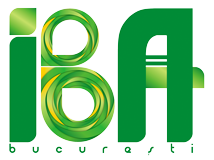More and more European citizens understand how the European Union’s food safety system works and have a clearer picture of the processes that ensure food is safe by the time it reaches their tables. This is the main conclusion of the latest Eurobarometer survey conducted by the European Food Safety Authority (EFSA), which shows a significant increase in public awareness and knowledge.
According to the study, awareness of how food safety operates in the EU has risen by six percentage points compared to 2022. Europeans are increasingly familiar with complex topics such as food additives, pesticides, animal diseases, microplastics, and food poisoning — a sign that public interest and knowledge in the field of food safety are growing.
When it comes to daily food choices, the cost of products remains the main factor influencing consumer decisions, cited by 60% of respondents. The taste of food (51%) and its safety (46%) also play an important role in Europeans’ preferences. However, a significant proportion — around 41% — say they do not actively seek information on food safety, assuming that the products available in shops are inherently safe.
Among the topics that attract the most consumer attention are food additives and pesticides, both known by over 65% of respondents. At the same time, concern about microplastics in food and animal diseases has increased considerably, while worries about the use of pesticides, antibiotics, and hormones in meat production remain high.
When it comes to trusted sources of information, doctors and healthcare professionals rank first, with a credibility rating of 90%. Scientists from universities and research institutes follow with 84%, while consumer protection organizations and primary producers also enjoy high levels of trust. Notably, trust in national authorities and EU institutions has increased compared to previous surveys, reaching nearly 70%.
In terms of information sources, television remains the primary medium for citizens, although its influence has declined compared to previous years. An increasing number of Europeans now turn to search engines, social media, blogs, or conversations with friends and family for information — a sign that media consumption habits are becoming more diverse.
EFSA considers these results “very encouraging” and emphasizes the importance of continuing communication efforts. A better understanding of how the food safety system works helps strengthen public trust and support for science-based decision-making. The agency also reminds consumers that they play a crucial role in maintaining food safety by following hygiene rules, preparing food properly, and adopting a balanced diet.
Source: AFFIDIA JOURNAL

